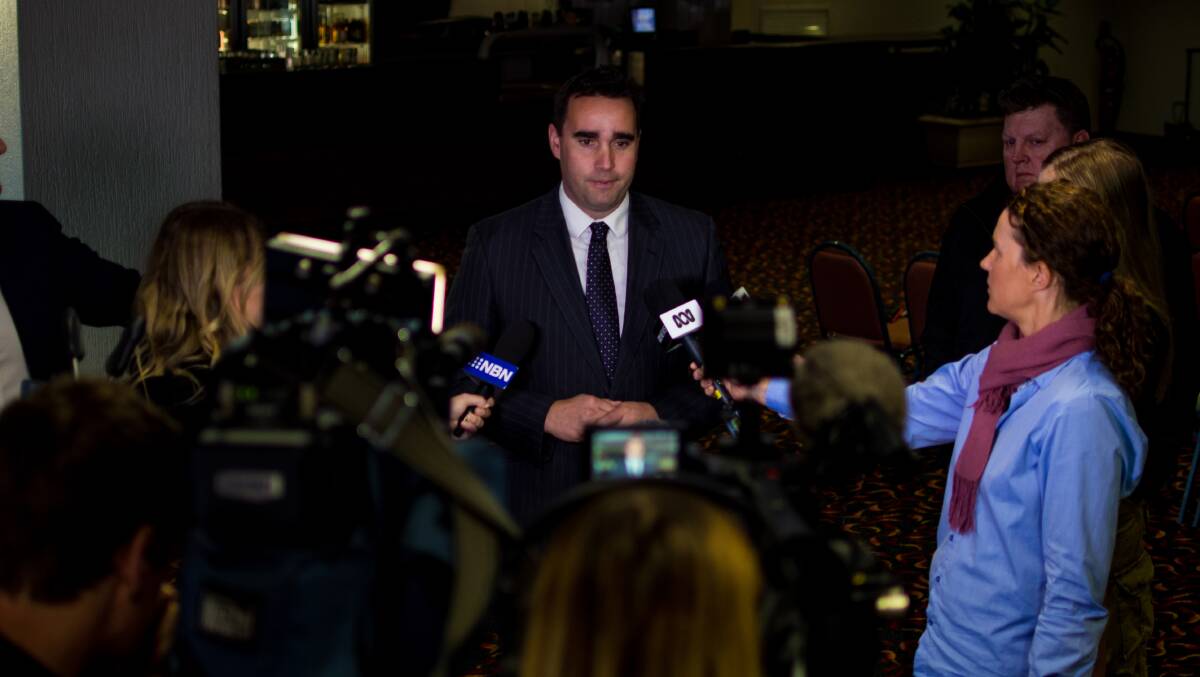SOME casual mineworkers at a number of Hunter mines are being “terminated” on Monday and switched between subsidiaries of labour hire firm One Key Resources as it moves to cope with a courtroom loss to the mineworkers’ union.
Subscribe now for unlimited access.
$0/
(min cost $0)
or signup to continue reading

But what would normally be two-way stoush between employer and union has turned into a three-way affair with class action firm Adero Law injecting itself into the long-running battle over casual employment in the coal industry.
Adero arrived in the Hunter earlier this year when it announced a class action against labour hire firm Chandler Macleod over employment conditions at BHP’s Mount Arthur mine.
It has now begun legal action over aspects of the One Key case, and has been writing to affected employees offering to help them, much to the ire of the union.
The total number of mines and mineworkers involved in the situation is unclear, but Glencore says there are some at its Bulga and Mount Owen mines and Adero says Wambo is also affected.
In an interview on Friday, the national president of the mineworkers’ division of the Construction, Forestry, Maritime, Mining and Energy Union, Tony Maher, said the One Key case was one of two major cases the union had been pursuing against “dodgy enterprise agreements”.

The other case was Workpac v Skene, and both cases were decided recently by full bench hearings of the Federal Court.
Employer groups have been up in arms about the union push, with lawyers Clayton Utz saying the Workpac case would “send shockwaves through many businesses who rely on a casualised workforce, as it makes it much harder to classify and treat employees as ‘casual’ where they work set, inflexible hours, and there is a degree of certainty about their ongoing work”.
The One Key case centred on the union’s objection to an enterprise agreement that was originally signed by only three people but was later used to employ more than 1100.

After the union court victory overturned the agreement, One Key put the subsidiary concerned, One Key Workforce, into voluntary administration under Ernst & Young on the last day of August, with the intention of transferring the affected employees to another company in the group.
The union accepted this move, but Adero – which challenged the agreement – wrote to the One Key workers last week telling them that they were likely to be owed substantial amounts of pay and entitlements under the federal government’s Fair Entitlements Guarantee scheme as a result of the court case, and urged them to be careful before signing anything.
“One Key should not be liquidating any of it’s entities or transferring any employees until a full audit of back pay owing to each current and former One key Workforce employee is completed,” Adero principal Rory Markham said on Sunday.
“They have grown tired of the new enterprise agreements, contracts and promises that result in nothing but a new ABN on their payslip or logo on their shirt.”
One Key has not responded to requests for comment, but documents show the affected employees were originally offered work with the new subsidiary “conditional on [their] resignation” from the old one.
But a day after Adero advised the workers not to resign, they received letters from the administrator saying One Key Workforce would not be able to pay them beyond “5:59am Monday, September 10, 2018” and that “your employment with the company will be terminated” at that time. They would be offered work with the new company once “your employment with One Key Workforce Pty Ltd ceases”.
The union advised its members to accept the new work offer, but not to resign their old jobs, for the same reason given by Adero.
Ernst & Young is holding a first creditors’ meeting in Brisbane on Wednesday, which the union says it will attend. It has told its members it has “reached a settlement for members employed by a number of One Key companies, including One Key Workforce”.
“Whilst there have been some recent legal issues that have held up the compensation that will flow from that agreement, we are confident these will be resolved in the near future,” the union says.
It described Adero as “a little-known Canberra law firm” cashing in on the union’s success in challenging sub-standard conditions.
Mr Markham dismissed the union’s criticism and said its clients “simply want the security of a full-time job and to be paid what they are owed”.


